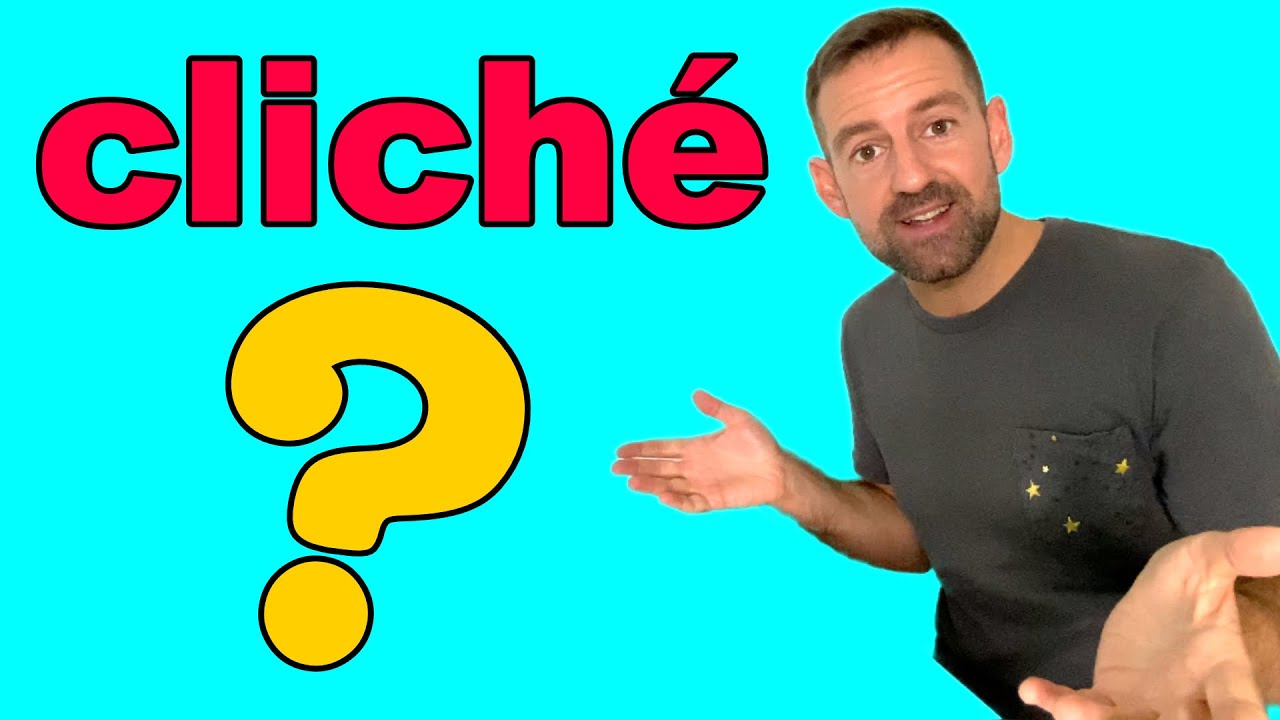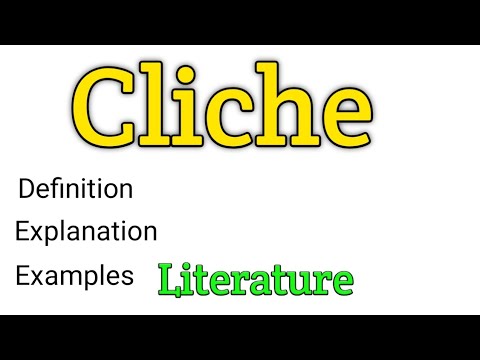
Clichés can clutter our communication, making messages less impactful and memorable. Understanding what are examples of clichés can elevate your speaking and writing, ensuring they resonate with audiences rather than merging into the background noise of everyday dialogue. Overcoming the clichés in your speech can be the game-changer needed to deliver powerful presentations and build your personal brand.
When it comes to public speaking, authenticity and originality are your best allies. Crafting speeches that can captivate an audience doesn’t only rely on the content but also on the freshness of your language. In a world increasingly drawn to unique voices, shedding clichés is essential.
Let’s dive in and discover what is a cliché example as we explore several phrases that often slip into our conversations and speeches, making them less effective. Here are seven notorious clichés to steer clear of:

Top 7 Clichés to Avoid in Your Speeches
Clichés might seem harmless on the surface, but they can dull your words significantly. Here are seven phrases that you need to leave behind:

Why Should You Avoid Clichés in Your Professional Communication?
Making a conscious effort to ditch clichés can transform your public speaking and overall communication. Here’s why steering clear of these worn-out phrases should be a priority:
By understanding what is cliché and examples of them, you’re taking a significant step towards improving your communication skills and your professional presence. Imagine you’re in front of an audience—it’s time to shine and let your unique voice cut through the noise.

Embracing Authentic Communication
Effectively conveying your message hinges on both your choice of words and their delivery. Avoiding clichés makes way for transformative communication. By choosing fresh, engaging language, you empower your audience to connect more deeply with your message while ensuring your words reverberate long after you’ve spoken.
Exploring new vocabulary and unique expressions fosters clarity and engagement. Stepping away from the common phrases, you create a space for your authentic self to emerge. When audiences hear your words, they are not just hearing a speech; they are feeling the passion behind your message.
Whether you’re presenting on the corporate stage like successful leaders or sharing motivational insights akin to inspiring figures, commit to revitalizing your communication styles in 2024 and beyond. Let’s banish clichés to ensure each interaction you have is both meaningful and memorable.
For more insights on delivering impactful presentations, consider our resource on feedback on presentation to refine your style and approach. Build connections and express your brand effectively, because nothing beats the exhilaration of good communication—it’s like saying,Good speaking With You, inspiring everyone in the room.
Ready to take your speaking game to the next level? Dive into our Teds training for tailored insights that will enhance your craft. Check out the Masterclass log in for exclusive guidance to elevate your performance.
In the world of public speaking and entrepreneurship, being authentic gives you the edge. Embrace it fully, as you venture into the vast possibilities awaiting you—it’s time to unleash your voice and command the stage without the needless clutter of clichés!

What Are Examples of Cliches That Dull Your Words
When exploring what are examples of cliches, it’s key to understand that they’ve crept into our speeches and writing without us even noticing. These phrases often undermine our message and disengage our audience. For instance, phrases like “think outside the box” and “pushing the envelope” have faded into the background noise of communication. Oddly enough, did you know big concepts sometimes mirror entertaining narratives? Just like the fierce tactics of Esdeath in “Akame ga Kill” pull viewers into a gripping story, effective language should capture listeners without resorting to overused phrases.
Alright, let’s delve into some common cliches. How about “low-hanging fruit”? You see, it’s a trendy way to say something is easy or readily available. Sadly, this expression can turn an insightful conversation into mundane banter. Similarly, discussions about football can be electrifying, except when talking about 49ers running Backs feels overly clichéd. Instead of using these tired phrases, spice things up! Relevant stats or entertaining anecdotes always beat the usual ballpark conversation.
And speaking of alternatives, consider what you could say instead of “raising the bar.” It may sound catchy, but it’s been done to death! A more vivid description or a fresh metaphor could breathe new life into your narrative. For instance, if you were to reference training sessions at the gym, placing more emphasis on free Weights makes for a livelier discussion than typical clichés. Remember, specific details outshine vague sayings, much like the difference between a typical classroom and a wild imagination of a teacher monster ready to inspire innovation.
In short, when you’re pondering what are examples of cliches, keeping your tone lively and precise is crucial. The all-too-familiar phrases can strip your speech of authenticity, so aim for flair! Just like how every member of the Austin And Ally cast has their unique charm, you also have the power to inject personality into your words. Let’s ditch the clichés—your audience will thank you for it!

What are 5 examples of clichés?
Examples of clichés include phrases like “play your cards right,” “it’s an uphill battle,” “better safe than sorry,” “you can’t judge a book by its cover,” and “a piece of cake.”
What is a common cliché?
A common cliché you might hear often is “time will tell,” which suggests that the truth will be revealed over time.
What are the clichés words?
Cliché words are phrases that’ve been repeated so much they’ve lost their impact, like “think outside the box” or “at the end of the day.”
What are the three types of clichés?
The three types of clichés typically include verbal clichés (overused expressions), visual clichés (common images that lack originality), and situational clichés (storylines or themes that are predictable).
What are buzzwords and clichés?
Buzzwords are trendy phrases that sound impressive but can often be vague, while clichés are tired expressions that have lost their punch due to excessive use.
What are stereotypes and clichés?
Stereotypes and clichés are both generalized ideas about groups or situations. Stereotypes often refer to people, while clichés usually refer to expressions or phrases that become predictable.
What is the most overused cliché?
The most overused cliché is often thought to be “at the end of the day,” as it tends to pop up in nearly every conversation.
What are personal statement clichés?
Personal statement clichés include phrases like “I’ve worked hard” or “I’m a people person,” which don’t really stand out or say much unique about a person.
What are some love clichés?
Some love clichés are “love at first sight,” “The course of true love never did run smooth,” and “opposites attract.” These are common themes in love stories that can feel a bit worn out.
How to spot a cliché?
To spot a cliché, listen for phrases that seem overly familiar or that you’ve heard countless times before. If it sounds predictable, it might just be a cliché.
What clichés are true?
Clichés that are true often resonate with people’s common experiences, like “money can’t buy happiness,” although they’re still considered trite when overused.
What are some character clichés?
Character clichés are typical roles or traits that often appear in stories, like the “damsel in distress” or the “wise old mentor,” that can feel one-dimensional and lack depth.
What are 10 clichés?
Ten clichés include: “actions speak louder than words,” “better late than never,” “it’s a small world,” “don’t count your chickens before they hatch,” “every cloud has a silver lining,” “easier said than done,” “get a taste of your own medicine,” “hit the nail on the head,” “in the nick of time,” and “it’s not rocket science.”
What is one example of cliché?
A classic example of a cliché is “all’s fair in love and war,” a silly way of saying anything goes when it comes to romance and conflict.
Why avoid clichés?
Avoiding clichés is smart because they can make your speech or writing feel predictable and uninspired, reducing the impact of your message.
What is the most overused cliché?
The most overused cliché pops up again and again as “at the end of the day,” which many people find simply tiresome.
What is a cliché in a sentence?
A cliché in a sentence could be, “He’s not the sharpest tool in the shed,” which is a common way to say someone isn’t very smart.
How to know if something is cliché?
To know if something’s cliché, ask yourself if you’ve heard it before a million times or if it sounds like something everyone says, instead of something fresh or original.
What statement is an example of a cliché?
An example of a cliché statement is, “You can’t have your cake and eat it too,” which implies that you can’t have it both ways and is something you’ve likely heard many times.









